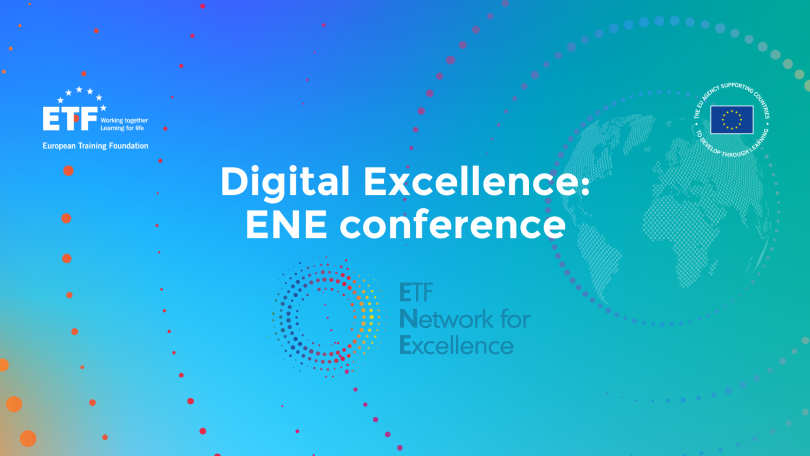
Digital Excellence: ENE Conference
For some in the world of vocational education and training, the future is now. And that future is digital.
Giovanni Crisonà is the founder of the Skillman.eu consortium - a network dedicated to skills forecast research and activities.
Founded 20 years ago, Skillman aims to build capacity and excellence in technical vocational education and Giovanni has worked in Europe, Africa and Asia, where he has negotiated and signed agreements with public bodies, schools, regional authorities and industry leaders such as FIAT FCA Automative, SAS Scandinavian Airlines Systems, Jaguar Land Rover and many other leading international organisations.
The network now numbers 600 members in 90 countries and works on skills anticipation with a focus on regional adaptation to the fast changing needs of the labour market.
During day one of last week's European Training Foundation Network for Excellence online conference, "Centres of Vocational Excellence as Engines for Vocational Education and Training Development", Giovanni outlined the advantages Centres of Vocational Excellence could gain from focusing on green and digital skills - particularly through public private partnerships.
"The European Commission in February proposed a New European Partnership for Investment, covering green and digital areas," he told conference participants.
"Our Centres of Vocational Excellence are engaged in this transition, and the aim is to deliver a European industry that is more competitive and resilient."
Contributions from two Skillman network members, in Spain and Italy, gave a snapshot of what can be achieved by the collaborative use of technology to expand knowledge and involve a greater range of partners across local and wider regions.
Luis De La Torre, is Associate Professor of Computer Science and Automatic Control Department, at Spain's distance learning institute, the Universidad Nacional de Educación a Distancia (UNED). He is also CEO of Nebulous Systems, a cyber security company that has developed a powerful new tool that allows educational providers and businesses to access laboratory facilities remotely.
He explained that through the applied use of cyber security systems, off-site, online computer controlled experiments could be conducted at laboratory facilities the users did not have themselves.
For an investment of between €4,000 and €6,000 users of Nebulous Systems' ENLARGE service (rEmote coNtrolled Access to inteRnet of thinGs dEvices) [Ed: CORRECT] can access "a cloud platform and suite of related hardware/software solutions that offers a way to easily implement cloud services for managing the configuration and acess to all types of sensors, actuators and controllers."
The system enables secure, controlled, organised and collaborative access from the internet to any of its physical systems - production lines, pilot plans, lab equipment etc.
"It is simple to use for any institution that has the necessary computer and web cameras," Luis said. "You also need smart power distribution units to ensure power is on when a user connects to the lab, but power off when the user disconnects."
In Italy's Reggio Emilia region, Filipp Di Gregorio, the Director General of industrial association, Unindustria, is developing a "digital district strategy" that aims to connect businesses, SMEs and training providers in a network of digital skills transfer.
Although still in its early days, the strategy, launched in late 2018, is already being implemented, supported by an initial investment of around €100,00. But with 1,000 members representing 50,000 employers, Unindustria has ambitious plans to bring in municipal and private supporters to upscale the strategy with plans to eventuall spend more than €1 million on ensuring that digital skills and competencies is at the core of regional industrial and training strategy.
Did you like this article? If you would like to be notified when new content like this is published, subscribe to receive our email alerts.